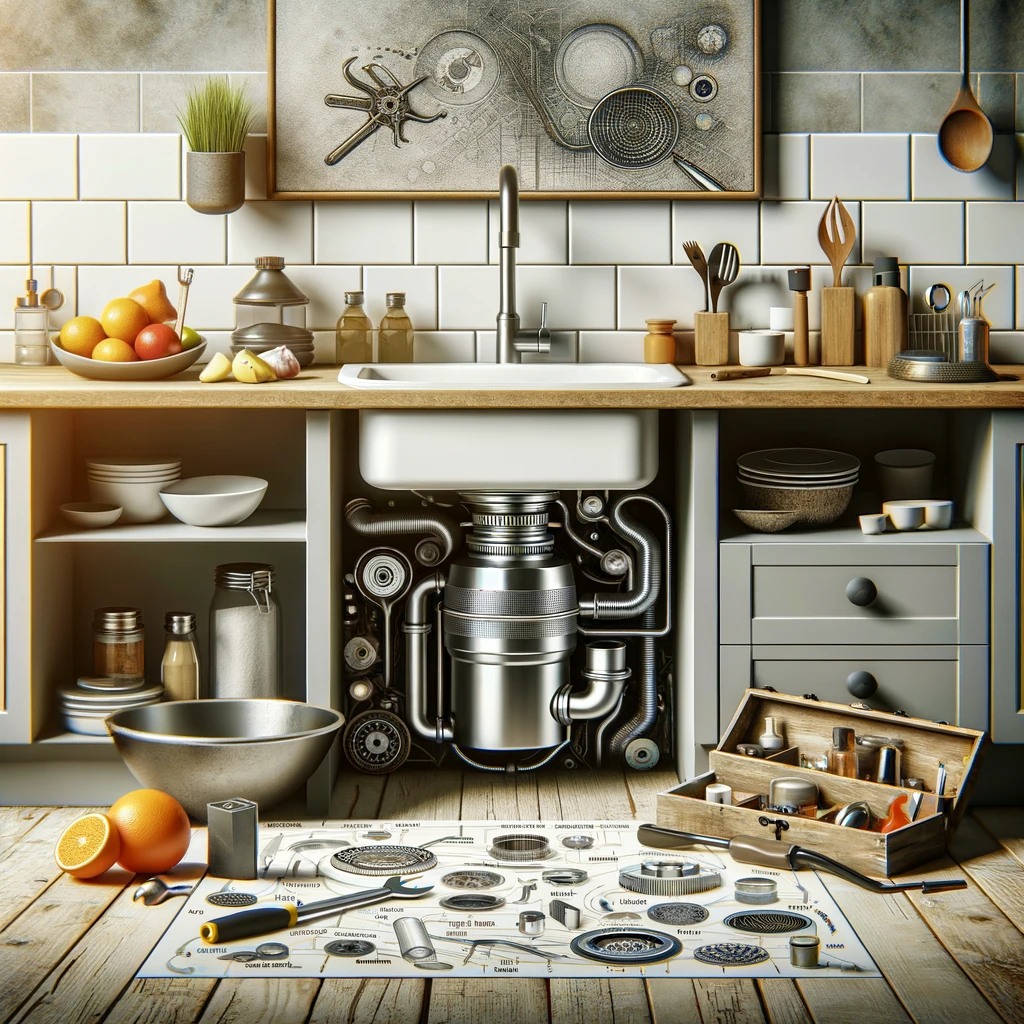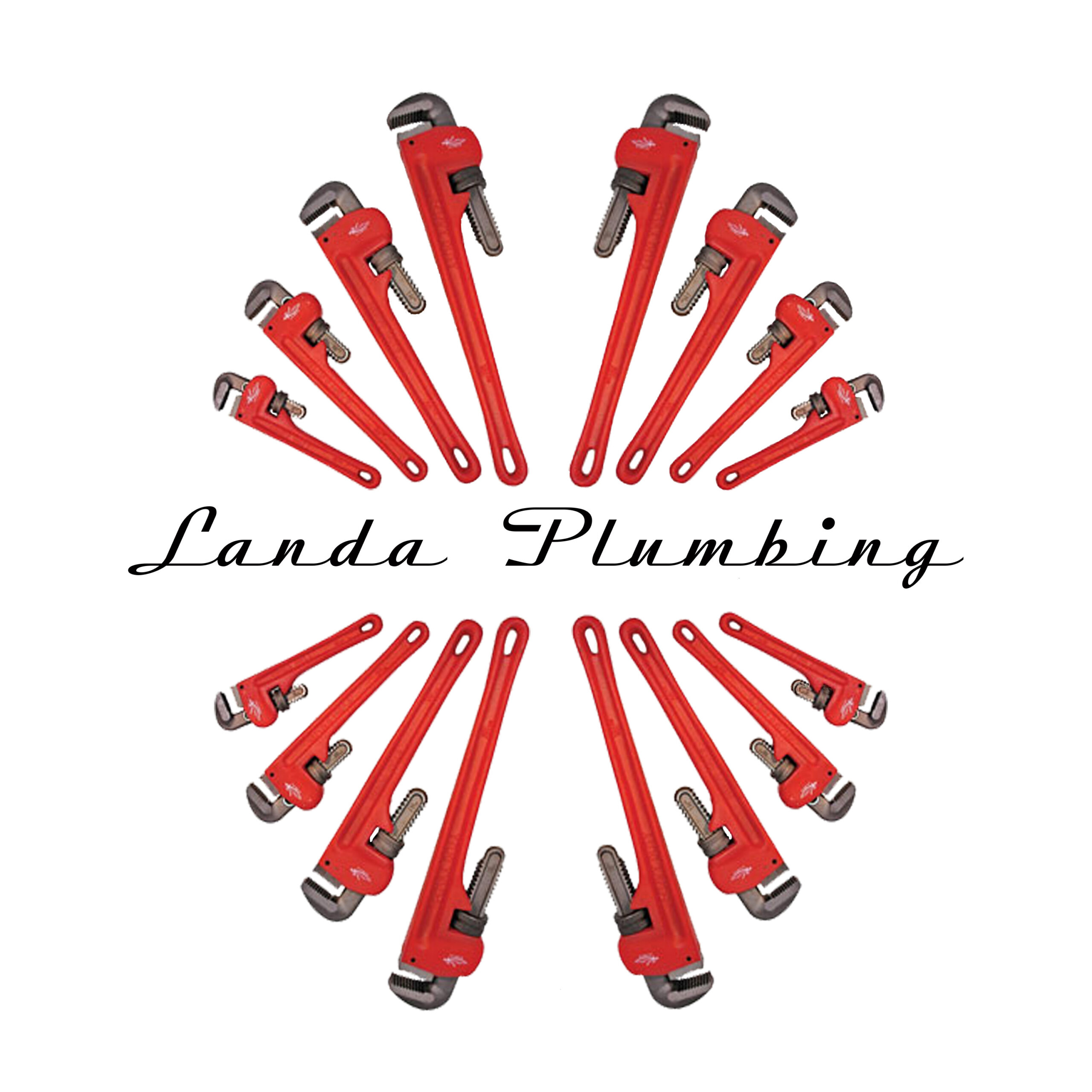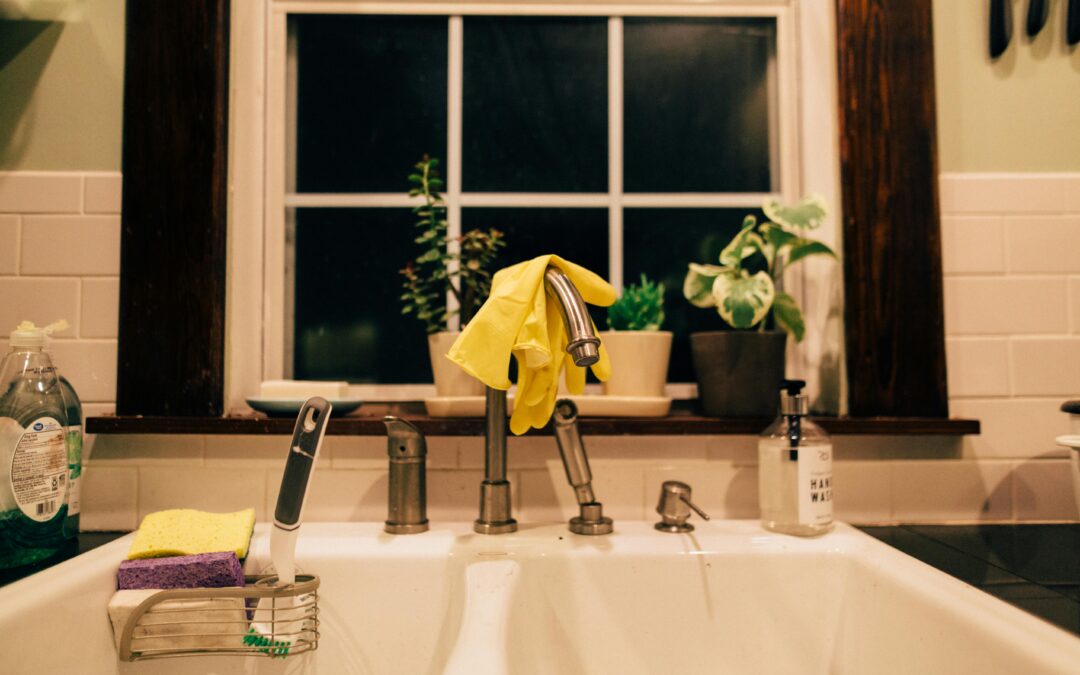Garbage disposals are a workhorse in modern American kitchens. They grind food scraps into a fine slurry, whisking them away with the flow of water, saving you the hassle of scraping and bagging waste and preventing your sink from getting clogged. But like any hardworking appliance, they’re not immune to occasional hiccups. This blog delves into the four most common garbage disposal issues, providing practical solutions to get your trusty unit humming smoothly again.
Whether you’re facing a stubborn clog, a concerning leak, or simply less-than-stellar grinding performance, this guide from Landa Plumbing’s experts equips you with the knowledge and steps to tackle these garbage disposal issues effectively.
Issue 1: Clogged Garbage Disposal Issues
Garbage disposal issues often manifest as a clogged drain, leading to frustrating humming noises, slow water flow, and water backing up into your sink. This can be caused by a variety of culprits: fibrous food scraps, hardened grease, bones, or even non-food items like eggshells or coffee grounds.
Diagnosing the Clog:
- Listen: A humming noise with no grinding action indicates a potential clog.
- Observe: If water drains slowly or backs up, a blockage is likely present.
- Inspect: If possible, peek into the disposal unit for visible food debris.
Removing the Clog:
- The Manual Method: Use an Allen wrench or a disposal tool (refer to your manual) to carefully break up and remove the clog.
- The Natural Approach: Pour ½ cup baking soda followed by 1 cup of hot vinegar down the drain. Let it fizz for 15 minutes, then flush with cold water.
- The Icebreaker: Grind a tray of ice cubes along with citrus peels and salt to sharpen the blades and freshen up the disposal.
- When in Doubt, Call a Professional: If the clog persists, call a plumber for professional assistance.
Preventing Clogs:
To avoid future clogs, remember:
- Dispose wisely: Stick to food scraps and avoid putting grease, bones, or non-food items down the drain. Remember the acronym F.O.G. – fats, oils, and grease! FOG should never enter your garbage disposal, or they may solidify and cause stubborn clogs.
- Flush regularly: Run cold water for 30 seconds after grinding to clear food particles and prevent grease buildup.
- Sharpen the blades: Occasionally grind ice cubes to keep the blades sharp.A well-maintained garbage disposal is a happy garbage disposal!
Issue 2. Garbage Disposal Not Turning On
When your garbage disposal suddenly refuses to turn on, leaving you with a sink full of unprocessed food scraps, panic might set in, but the cause might be simpler than you think. Let’s delve into the common reasons behind non-responsive garbage disposal issues and explore solutions to get it back in action.
Symptoms:
- Complete silence: No humming, grinding, or any other noise indicates a power issue, not a mechanical malfunction.
- No lights: If your disposal has indicator lights, check if they are illuminated.
Initial Troubleshooting:
- Power Basics: Ensure the disposal is securely plugged into a working outlet and the wall switch is turned “on.”
- Breaker Check: Locate your home’s electrical panel and identify the breaker associated with the kitchen circuit. If it’s tripped, reset it cautiously and attempt to turn the disposal on again.
Further Investigation:
- Outlet Verification: Plug another appliance (like a lamp) into the same outlet as the disposal to confirm if the outlet itself is functioning.
- Disposal Reset: Many disposals have a built-in reset button, typically located on the underside of the unit. Press and hold it for a few seconds, then try turning the disposal on once more.
- Consult the Manual: Your owner’s manual often provides specific troubleshooting steps tailored to your disposal model. Refer to it for detailed instructions and potential solutions.
Seeking Professional Help:
While these initial steps often resolve the issue, electrical problems require caution. If you’re uncomfortable dealing with electrical components, or if the above solutions fail to revive your disposal, seek help from a qualified electrician or plumber. They have the expertise to diagnose and fix complex electrical problems safely and effectively.
Preventative Measures:
Proactive maintenance can prevent many garbage disposal issues. Avoid overloading the unit, stick to grinding food scraps only, and run cold water after grinding to flush out any lingering particles.

Issue 3: Leaking Garbage Disposal
Leaking garbage disposal issues can quickly turn your kitchen into a watery mess, causing frustration and potential damage. Let’s lay out common causes and potential solutions to get your disposal back in tip-top shape.
Identifying the Culprit:
First, pinpoint the exact location of the leak. Is it dripping from the top, bottom, or sides of the unit? This will help narrow down the possible causes.
Common Leak Sources:
- Loose Connections: Over time, connections between the disposal, sink flange, and drainpipes can loosen, leading to leaks.
- Worn-Out Gaskets: Gaskets are rubber seals that create watertight connections. As they age and wear, they can become brittle and leak.
- Damaged Unit: In rare cases, the disposal unit itself may be cracked or damaged, causing a leak.
Taking Action:
- Tighten Loose Connections: Use a wrench to carefully tighten any loose connections you identify. Be mindful not to over-tighten, as this can damage threads.
- Replace Worn Gaskets: Consult your owner’s manual to identify the specific gaskets needed for your disposal model. Replace them yourself if comfortable, or seek professional help if needed.
- Seek Professional Assistance: If the leak persists or appears extensive, or if you are unsure about the source or repair process, call a qualified plumber. It’s always better to have a professional fix it than to go messing around yourself.
Prevention is Key:
To avoid future leaks, remember these preventive measures:
- Avoid Overfilling: Don’t overload the disposal, as this can strain the unit and loosen connections.
- Grind Wisely: Stick to food scraps and avoid putting grease, bones, or non-food items down the drain, which can damage the unit over time.
- Regular Inspections: Periodically check for loose connections and visible signs of wear on gaskets. Early detection can prevent major leaks and costly repairs.
Issue 4: Garbage Disposal Odors
Unpleasant odors emanating from your garbage disposal can quickly turn your kitchen from inviting to unpleasant. Unwelcome smells often stem from common causes and can be effectively addressed with simple solutions.
Common Odor Culprits:
- Food Residue Buildup: Over time, tiny food particles can cling to the disposal blades and interior, creating a breeding ground for odor-causing bacteria.
- Grease Accumulation: Grease can coat the disposal blades and pipes, trapping food particles and contributing to unpleasant smells.
Fighting Odors:
- The Citrus Trick: Run the disposal with cold water, salt, and citrus peels (lemon, orange, etc.). The natural oils and citric acid help neutralize odors and leave a refreshing scent.
- Ice Cube Cleanse: Grind a tray of ice cubes to sharpen the blades and dislodge any stuck-on food particles. Add baking soda for extra odor absorption and cleaning power.
- Vinegar Rinse: Regularly flush the disposal with a mixture of white vinegar and water (1:1 ratio) to break down grease and neutralize odors.
- Ventilation Matters: Ensure proper ventilation under the sink. Open windows or use an exhaust fan to remove lingering odors and prevent them from accumulating.
Prevention is Key:
- Grind Wisely: Stick to grinding food scraps only. Avoid grease, bones, and non-food items, as they can contribute to odor and clog the disposal.
- Cold Water Flush: Run cold water for 30 seconds after grinding to clear food particles and prevent grease buildup.
- Regular Cleaning: Make cleaning your disposal a regular habit. Combine the above methods (citrus peels, ice cubes, vinegar) for a comprehensive cleaning routine.
By understanding the causes and implementing these practical solutions, you can keep your garbage disposal issues a thing of the past. Your garbage disposal will be functioning hygienically and odor-free, ensuring your kitchen remains a pleasant and welcoming space.
For more complex garbage disposal issues or if you simply prefer professional assistance, Landa Plumbing is here to help! Our experienced technicians are equipped to handle any garbage disposal issues, from stubborn clogs to electrical malfunctions. We offer prompt, reliable service and guarantee your satisfaction.
Don’t let garbage disposal issues disrupt your kitchen harmony. Contact Landa Plumbing today for expert diagnosis and repair, and keep your kitchen humming happily!

